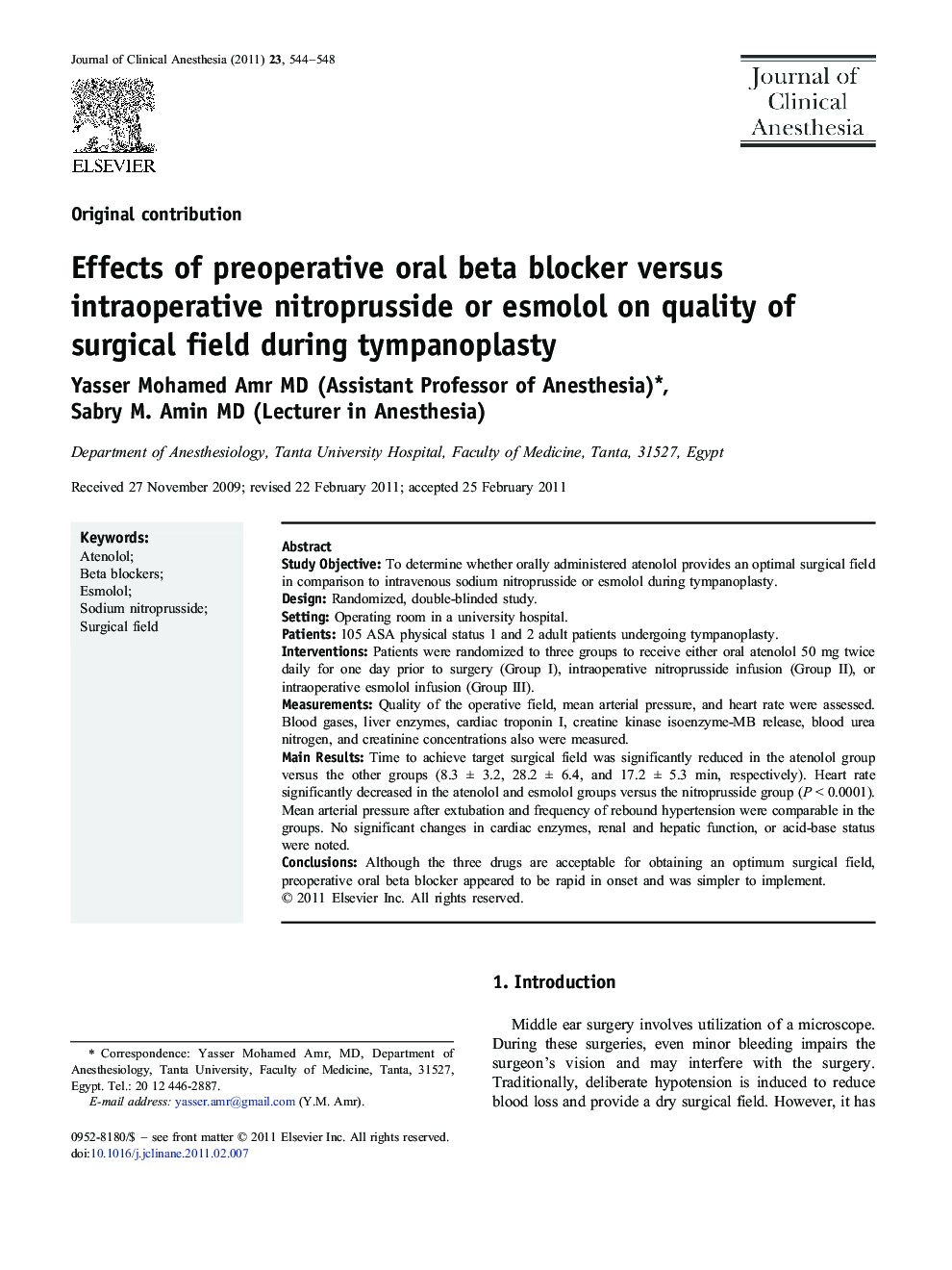| Article ID | Journal | Published Year | Pages | File Type |
|---|---|---|---|---|
| 2763230 | Journal of Clinical Anesthesia | 2011 | 5 Pages |
Study ObjectiveTo determine whether orally administered atenolol provides an optimal surgical field in comparison to intravenous sodium nitroprusside or esmolol during tympanoplasty.DesignRandomized, double-blinded study.SettingOperating room in a university hospital.Patients105 ASA physical status 1 and 2 adult patients undergoing tympanoplasty.InterventionsPatients were randomized to three groups to receive either oral atenolol 50 mg twice daily for one day prior to surgery (Group I), intraoperative nitroprusside infusion (Group II), or intraoperative esmolol infusion (Group III).MeasurementsQuality of the operative field, mean arterial pressure, and heart rate were assessed. Blood gases, liver enzymes, cardiac troponin I, creatine kinase isoenzyme-MB release, blood urea nitrogen, and creatinine concentrations also were measured.Main ResultsTime to achieve target surgical field was significantly reduced in the atenolol group versus the other groups (8.3 ± 3.2, 28.2 ± 6.4, and 17.2 ± 5.3 min, respectively). Heart rate significantly decreased in the atenolol and esmolol groups versus the nitroprusside group (P < 0.0001). Mean arterial pressure after extubation and frequency of rebound hypertension were comparable in the groups. No significant changes in cardiac enzymes, renal and hepatic function, or acid-base status were noted.ConclusionsAlthough the three drugs are acceptable for obtaining an optimum surgical field, preoperative oral beta blocker appeared to be rapid in onset and was simpler to implement.
